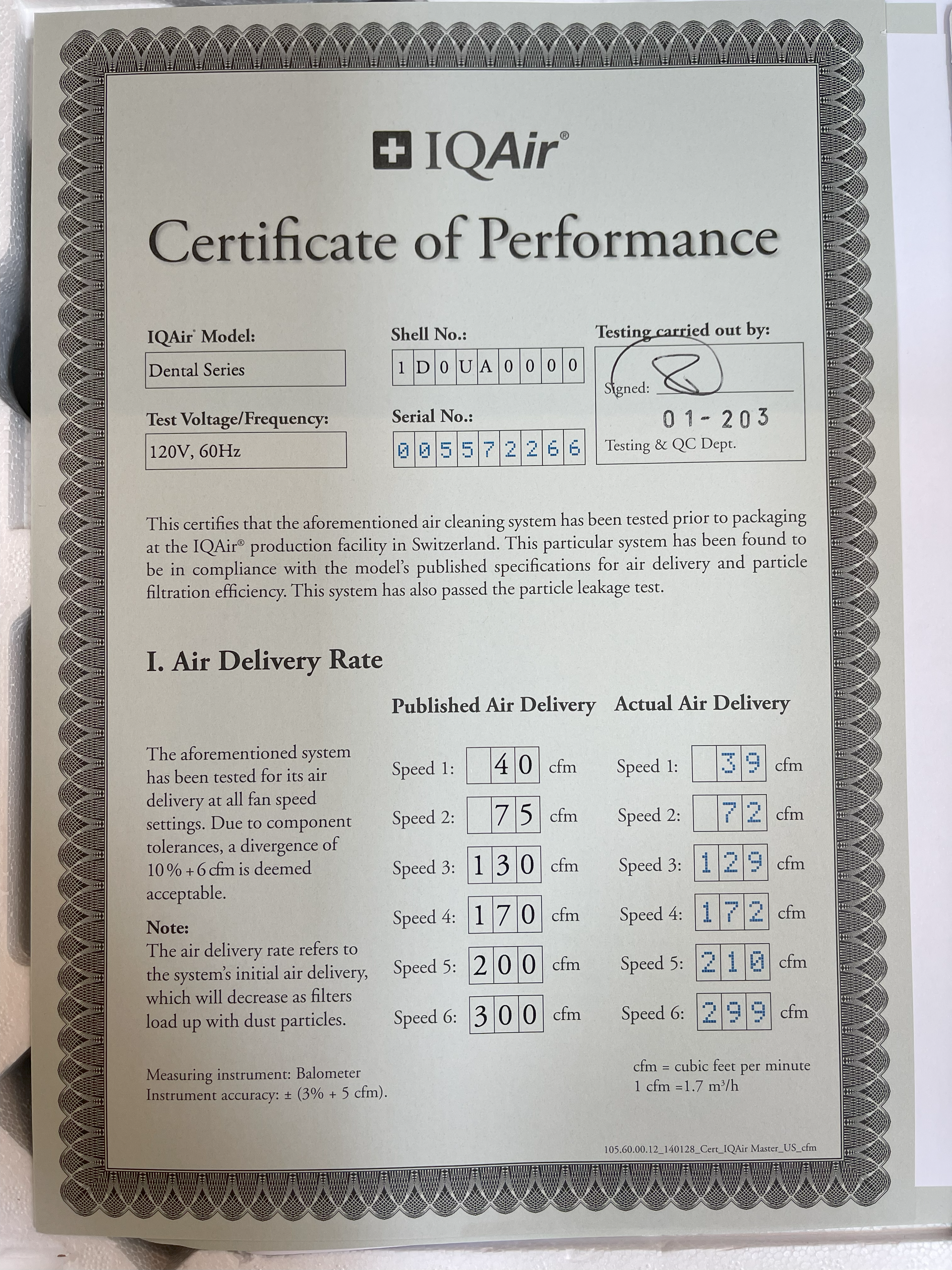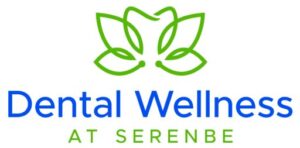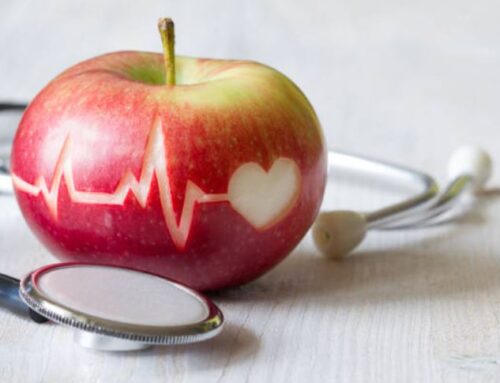The dental office can expose patients, dentists and their staff to a wide variety of air pollutants during routine dental work, including infectious aerosol particles from high-speed instruments as well as airborne pathogens like bacteria and viruses. Our office always had Dyson air filters that automatically turned on and off in the operatories well before the COVID-19 pandemic, but the pandemic really made us look for a solution that was the best possible option for our patients and staff members. We researched best filters available which had extraoral suction and found the IQAir Dental Hg FlexVac Series.
Here are some pictures of us unpacking and setting up Dental Hg with FlexVac arm attachment:
We also received a hand-signed certificate of Performance from the factory showing the details for our unit. It shows the particle filtration efficiency and airflow of each system to meet published specifications of the system at various speeds.

Dental Series Hg
For dentists, staff, and patients, the execution of dental work and the use of various chemical compounds increase the risk of exposure to a range of potentially harmful airborne contaminants. Especially for dental staff, this exposure to potentially harmful airborne pathogens and pollutants can be significantly higher than that of individuals in most indoor environments.
The use of high-speed drills and ultrasonic scaling equipment generates fine droplets and aerosol particles that are light enough to stay airborne for hours. Bacteria and viruses, which are contained in drill aerosols consisting of million of micro-droplets, are easily inhaled and constitute a potential source of infection.
Extraoral suction: Infection control
Extraoral suction is a critical part of infection control during dental procedures by reducing the amount of infected aerosols and particles that escape the mouth during dental procedures. Having the flex arm right by the mouth captures most of the particles in the air along with the suction held by the dental assistant.
High-speed instruments used for drilling or scaling can produce millions of tiny aerosols and droplets that carry infectious bacterial or viral material. These particles can directly affix themselves to the clothes of dental staff and linger in the air for hours, exposing staff and patients to an increased risk of respiratory infections.
The most effective infection control in a dental office consists of a high-performance air purifier at the source capture (Hg FlexVac) using extraoral suction to prevent infectious airborne aerosols from ever leaving the dental operatory.
Mercury
Numerous studies show that dentists and their staff have higher than average levels of inorganic mercury (Hg) in their blood and urine. Mercury vapors can be released by the placement and the removal of amalgam fillings. They may also be released from office surfaces where they may have accumulated over years of usage.
Disinfectants
Chemical disinfectants in a dental office are responsible for a generally unpleasant odor. Some disinfectants may also cause irritation and may have a sensitizing potential, especially for staff.
In order to effectively clean the air in a dental office, an air purifier must be able to use extraoral suction and high-efficiency particles and gas filtration technology to capture both particles (aerosols, microorganisms, droplets, dust) and gaseous chemicals (mercury vapors, gaseous organic compounds).
Control at the source is important
To capture aerosol particles, airborne pathogens, and other pollutants generated by dental work on patients, an air cleaning system with extraction at the source (extraoral suction) and negative pressure equipment should be used. For general air quality improvement, an air cleaning system should be used at central locations within the dental procedure area.
The air cleaning systems should contain high-efficiency particulate filters as well as substantial gas phase filters for mercury vapors, disinfectants, and volatile organic compounds.
“Clean air protects the health of patients, staff“














